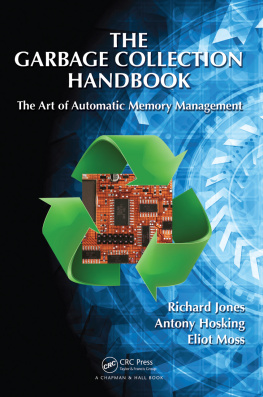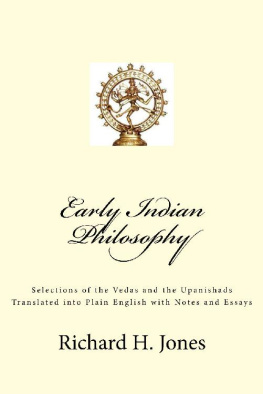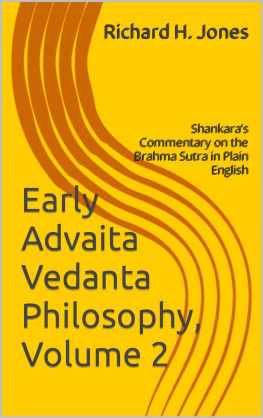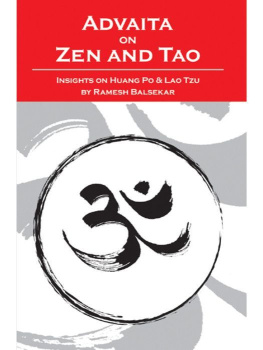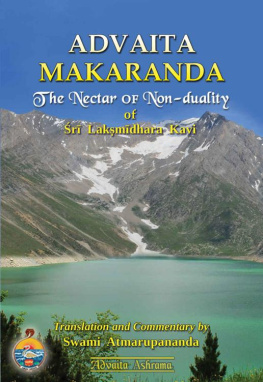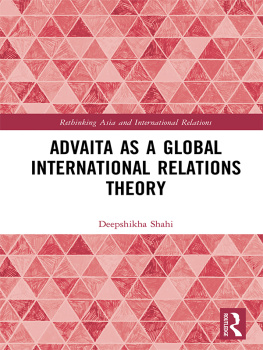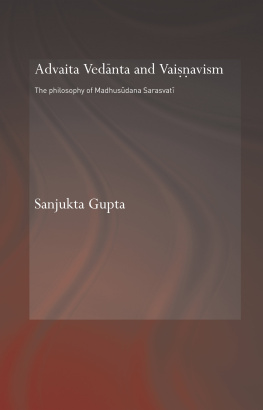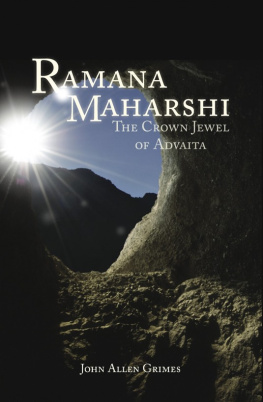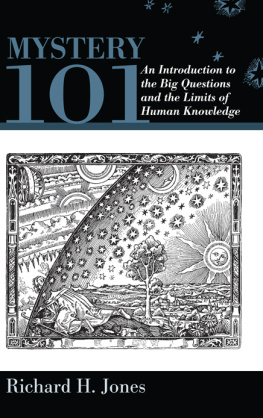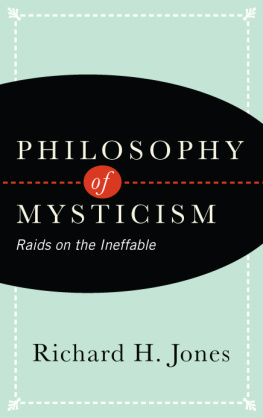Richard Jones - Gaudapada: Advaita Vedantas First Philosopher
Here you can read online Richard Jones - Gaudapada: Advaita Vedantas First Philosopher full text of the book (entire story) in english for free. Download pdf and epub, get meaning, cover and reviews about this ebook. year: 2014, publisher: Jackson Square Books, genre: Religion. Description of the work, (preface) as well as reviews are available. Best literature library LitArk.com created for fans of good reading and offers a wide selection of genres:
Romance novel
Science fiction
Adventure
Detective
Science
History
Home and family
Prose
Art
Politics
Computer
Non-fiction
Religion
Business
Children
Humor
Choose a favorite category and find really read worthwhile books. Enjoy immersion in the world of imagination, feel the emotions of the characters or learn something new for yourself, make an fascinating discovery.
- Book:Gaudapada: Advaita Vedantas First Philosopher
- Author:
- Publisher:Jackson Square Books
- Genre:
- Year:2014
- Rating:3 / 5
- Favourites:Add to favourites
- Your mark:
- 60
- 1
- 2
- 3
- 4
- 5
Gaudapada: Advaita Vedantas First Philosopher: summary, description and annotation
We offer to read an annotation, description, summary or preface (depends on what the author of the book "Gaudapada: Advaita Vedantas First Philosopher" wrote himself). If you haven't found the necessary information about the book — write in the comments, we will try to find it.
Gaudapada: Advaita Vedantas First Philosopher — read online for free the complete book (whole text) full work
Below is the text of the book, divided by pages. System saving the place of the last page read, allows you to conveniently read the book "Gaudapada: Advaita Vedantas First Philosopher" online for free, without having to search again every time where you left off. Put a bookmark, and you can go to the page where you finished reading at any time.
Font size:
Interval:
Bookmark:
Richard H. Jones
Jackson Square Books2014
Gaudapada: Advaita Vedantas First Philosopher / translations with notes andessays by Richard H. Jones.
Includes bibliographical references.
ISBN-13: 978-1501066191
ISBN-10: 1501066196
1.1.
The Gaudapada-karikas Books...................................... 1
A Critique of the Gauda Schools Philosophy........................ 61
BUBrihadaranyaka Upanishad
GKGaudapada-karikas
ManU Mandukya Upanishad
MHK Bhavavivekas Madhyamaka-hridaya-karikasMMK Nagarjunas Mula-madhyamaka-karikasVVNagarjunas Vigraha-vyavartani
Gaudapada was the first Vedantin to leave a record of a truly nondual(advaita) interpretation of the Upanishads. He does not claim to be presenting a new view but to be presenting a defense of an existing tradition(agama). What is presented here is a plain English translation of the workascribed to him the Gaudapada-karikas with notes to explain someideas and separate essays on the rise of Advaita, the question of who theauthor or authors were, the influence of Buddhism (especially the Nagarjunaof the Madhyamaka tradition), and a summary and critique of the philosophyof this early school of Advaita.
The attempt will be to try avoiding reading in later Advaita ideas intoGaudapada and letting the text speak for itself. (SeeRao 2012 for the problemof the distortions by later Advaita doctrines.) Shankaras Commentary on theGaudapada-karikasis not included because I believe he sometimes lets hisown sense of Advaita control his understanding of both this and theUpanishads, but a summary of it is included in myEarly Advaita VedantaPhilosophy, volume 1.
The objective here is to provide a translation of the Gaudapada-karikasfor the general reader that avoids letting later Advaita doctrines dictate themeaning of the these early works. (See Rao 2012 forthe problem of thedistortions by later Advaita doctrines.) But of necessity, a translatorsunderstanding of an authors doctrines affects the translation, and that isdangerous the text should control a translators understanding of thedoctrines, not the other way around, but translating those texts complicatesthe situation. Thus, essays have been included to explain my understanding;in addition, material has also been added in parentheses to the translationsthemselves to make my understanding clear.
A few Sanskrit terms should probably be left untranslated because anysingle English term may be misleading in particular, brahman, atman,and avidya. Only brahman has been left untranslated. This does not meanthat they cannot be explained in simple and clear English but only that noone English term is a substitute for them that will not make us think in termsof Western ideas.
Much of the shock of Advaitas doctrine that All is Brahman is removedonce it is understood properly. But a critique is included here that does showsome of the problems with it.
v[1] Om this entire world is this syllable. To explain further: thepast, present, and future all that is simply Om. And whatever isbeyond the three times is also simply Om.
[2] Truly, everything that is is Brahman. Brahman is this Self.Brahman is the Self consisting of four quarters.
[3] The first quarter of the Self is Vaishvanara. It is the one
common to all. It is stationed in the waking state and perceives
outwardly. It has seven limbs and nineteen mouths and enjoys the
manifestly material.
[4] The second quarter is Taijasa, the brilliant one. It is stationed
in dream sleep and perceives inwardly. It possesses seven limbs and
nineteen mouths and enjoys subtle (i.e., invisible) things.[5] The third quarter is Prajna, the cognitive one. It is stationed in
deep sleep, i.e., when a sleeping person has no desires and sees no
dreams whatsoever. Prajna is one and thus is truly a single mass of
cognition. It consists of bliss and enjoying bliss. It has consciousness
as its mouth. [6] This is the lord of all, the knower of all, the inner
controller, and the womb of all things. It is truly the beginning and end
of all beings.
[1] The first quarter Vaishvanara is the all-pervading knower of theentire external world. The second quarter Taijasa, the brilliant one isthe knower of the internal world (i.e., dreams). The third quarter Prajna,the cognitive one is a mass of cognition. But it is the one Self alone that isknown in these three states. [2] The opening for knowing the external worldis in the right eye (a symbol for all the sense-organs). For the internal world,it is the mind. For the mass of cognition, it is space within the heart. Thus,the one Self is threefold in the body.
[3] The knower of the external world always experiences visible objects;the knower of the internal world always experiences invisible objects; and the1cognitive one always experiences bliss. Thus, know that experience isthreefold. [4] Visible objects satisfy the knower of the external world; subtleobjects satisfy the knower of the internal world; and bliss likewise satisfiesthe cognitive one. Thus, know that satisfaction is threefold.
[5] Thus, the objects of experience and the experiencer are in these threestates. One who knows both as described is not contaminated by enjoyingexperiences.
Theories of Creation[6] It is well-accepted (among the unenlightened) that all existingentities must have an origin. Life-breath manifests the objective universe, andthe cosmic person creates separately the rays of consciousness (i.e., theindividual phenomenal beings) in their manifold forms.
[7] Some who consider the idea of the creation of the universe thinkit is the expansion of the Self by its power. Others imagine creation as havingthe same form as a dream or a magical illusion. [8] Others have a firmconviction that the reality of the manifested objects is merely the desire ofthe Lord. Those who regard time as real declare time to the creator of allbeings. [9] Some say creation is for the purpose of the Selfs enjoyment.Others say it is merely the Selfs play.
But creation must be from the very nature of the radiant Self for whatdesire can there be for the one has accomplished everything?Return to the Mandukya Upanishad[7] (The fourth quarter is Turiya.) People say that the fourthquarter neither perceives outwardly nor inwardly nor both. It is not amass of cognition it is neither cognitive nor noncognitive. It isunseen, not open to interaction, ungraspable, without a defining mark,inconceivable, indescribable, the cessation of material proliferation,tranquil, auspicious, and without a second (advaita). The essence of itscertainty is the one Self. That is the Self. That is what is to be known.
[10] The fourth state of the Self brings about the cessation of allsuffering. It is known as the changeless, all-pervading, nondual radiant Lordof all entities. [11] The first and second quarters are conditioned by cause andeffect. The third quarter is conditioned by cause alone. But in the fourthquarter, neither cause nor effect is established.
Font size:
Interval:
Bookmark:
Similar books «Gaudapada: Advaita Vedantas First Philosopher»
Look at similar books to Gaudapada: Advaita Vedantas First Philosopher. We have selected literature similar in name and meaning in the hope of providing readers with more options to find new, interesting, not yet read works.
Discussion, reviews of the book Gaudapada: Advaita Vedantas First Philosopher and just readers' own opinions. Leave your comments, write what you think about the work, its meaning or the main characters. Specify what exactly you liked and what you didn't like, and why you think so.


